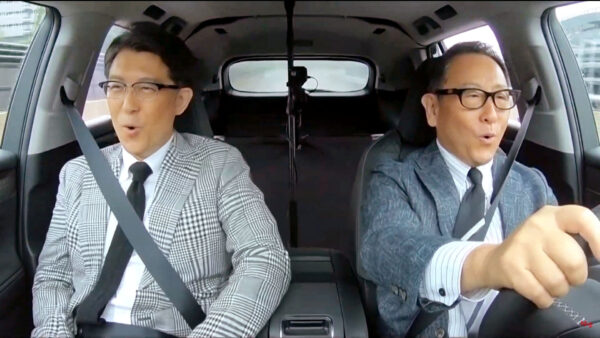Toyota’s CEO Akio Toyoda is stepping down from his position and assuming the role of chairman after over 13 years in charge, the company announced on Thursday, amid plans to transition to electric vehicles.
Toyoda, 66, is the grandson of Toyota’s founder and has led the company since 2009. He will resign on April 1 and be succeeded by Koji Sato, president of Toyota’s luxury brand Lexus, the company said in a statement.
Toyoda said that the decision was made following Takeshi Uchiyamada’s intention to step down as the company’s chairman. Uchiyamada will remain as a board member after his resignation on April 1.
“I thought that the best way to further Toyota’s transformation would be for me to become chairman in support of a new president, and this led to today’s decision,” he said during a live broadcast.
“In retrospect, these 13 years have been a period of struggling to survive one day after the next. That is my honest feeling,” Toyoda added.
He believes that Sato has what it takes to push the business “beyond the limits that I can’t break through.”
“To promote change in an era in which the future is unpredictable, the head of management must continue to stand on the front lines,” Toyoda said.
“For that, stamina, energy, and passion are indispensable. Being young is itself a key attribute.”

Sato, 53, currently serves as the company’s chief branding officer and president of the Gazoo Racing unit. His appointment will still require formal approval from the shareholders at the next general meeting.
During the live broadcast, Sato said that he intends to accelerate Toyota’s transition to electrification and engage in car manufacturing that “responds to diverse values and local needs.”
“I will give my all to bringing us one step closer to a future of mobility that only carmakers can create,” he remarked.
Electric Vehicles
Toyota Motor Corporation, the world’s largest carmaker by sales, pledged in 2021 to invest $35 billion to sell 3.5 million electric vehicles globally by 2030 and release 30 battery-powered models within the same period.
In September 2022, Toyoda said that battery-electric vehicles (BEVs) will “take longer to become mainstream than the media would like us to believe,” citing its impact on the electrical grid and the lack of easy access to electricity as barriers to its adoption.
Toyoda said that his company would continue to offer a variety of car models to customers while advancing its goals for electric car development, pushing back against critics who claimed that Toyota was slow to embrace BEVs.
“Playing to win means playing with all the cards in the deck, not just a select few. So that’s our strategy and we’re sticking to it,” he said at a press briefing in Las Vegas.
The company launched its first mass-produced BEV in May 2022 but later issued a global recall of the bZ4X over loose bolts connecting the wheels, which could result in the wheels falling off while driving.
Toyota, like other manufacturers, is saddled with higher prices because of recent inflationary pressures. It has scored such success with its Prius and other hybrids, which switch back and forth between an electric motor and gas engine, that it has tended to lag in pushing EVs, said Inoue.
The Associated Press contributed to this report.







